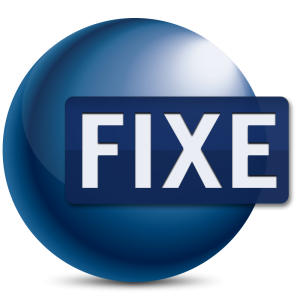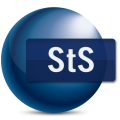Introduction
Over the years the Financial Information Exchange (FIX) Protocol has achieved worldwide acceptance among various financial industry participants - hedge funds, money managers, sell-side firms, traditional exchanges and ECNs. Currently, FIX is being used for equities, fixed income and foreign exchange trading for both cash and derivative products.
The software solutions for FIX Protocol based electronic trading are commonly known as FIX Engines. FIX Engines maintain electronic connectivity with trading counterparts, communicate trading information and monitor data integrity.
InfoReach is devoted to maintain its leading position in the growing FIX Engine technology. We have developed a comprehensive product for electronic trading that allows companies to be competitive in the market. Abundant features, high reliability and committed support that accompany our product have made it a technology choice of major financial institutions including UBS, Credit Lyonnais Securities, Barclays Capital, Bank of America, etc.
Knowledge, experience and understanding of the trading industry are the qualities of InfoReach - a partner who will help your firm take the necessary step to the next level of electronic trading.
InfoReach FIX Engine is an enterprise-strength solution for companies who plan to use the FIX protocol for electronic financial information exchange of financial data, and Straight Through Processing (STP). It’s an off-the-shelf solution that fits seamlessly into any electronic trading infrastructure.
InfoReach FIX Engine consists of a FIX Messaging Library and a stand-alone FIX Server. Client applications link to the FIX Messaging Library in order to generate and/or process FIX messages. The FIX Engine maintains TCP/IP and FIX sessions.
The communication model is peer-to-peer, where a peer is either a client or a server. One client can connect to multiple servers and multiple clients can connect to the same server.
Overview
Scalability
Client applications can communicate with the FIX engine(s) locally (in-process) or remotely (out-of-process). Also, client applications can use local and remote engines at the same time. You can distribute InfoReach FIX Engines across a network of computers creating a FIX Engine Domain. This optimizes the engine’s performance and takes advantage of available resources. The provided configuration tool assists with adding and removing the instances of the FIX engines. No changes to the client application are required to scale the engine deployment.
Flexibility
InfoReach FIX Engine hides the complexity of its distributed deployment. It provides a single point of entry APIs, called Engine Proxy, for client applications. Engine Proxy lets client applications access any FIX session that runs on any distributed engine. Client applications do not have to know which engine a specific FIX session belongs to, nor where that engine happens to be running.
InfoReach FIX Engine provides Java, C++ and .NET APIs for a convenient integration with various client applications.
Performance
Our product handles high volumes of message flow across multiple connections. We achieve this high level of efficiency by combining a high-speed multi-threaded engine with a framework that allows distribution of engines across a network of computers.
Deployment Options
In-process
FIX Engine deployment is in-process when a client application shares its process space with FIX Engine.
Out-of-process
FIX Engine deployment is out-of-process when a client application and FIX Engine do not share the same process space.
Scaled
FIX Engine deployment is scaled when multiple out-of process FIX Engines form distributed FIX message flow processing.
Fault Tolerant Cluster
Two or more out-of-process FIX Engines can be deployed to form a fault tolerant cluster.
High Availability and Fault Tolerance
High Availability and Fault Tolerance levels are subject to resident hardware and network resiliencies, and the recovery capabilities of client counterparts.
Recovery of a FIX Engine can occur in several ways:
- The customer can take full control of the recovery. Since the FIX Engine state is persisted, an application environment management system can automatically restart the engine on a backup system; or if preferred, the support staff can restart it manually.
- Two or more FIX Engines grouped into a fault tolerant cluster can provide an engine’s automatic self-recovery. The engine detects a failure condition, and automatically recovers by designating an instance in the cluster to be the new primary. The active FIX Client Engine connections are then re-established automatically. Typically, FIX Server Engines accept connections. So, the protocol of their recovery is dependent on the capabilities of the FIX client counterpart, and the resident network. If the FIX client counterpart has the ability to redirect its FIX connections to an alternate server, it will be able to connect to the new primary.
Integration Services
The team of InfoReach engineers can perform the required product integration/development or provide general implementation guidance.



